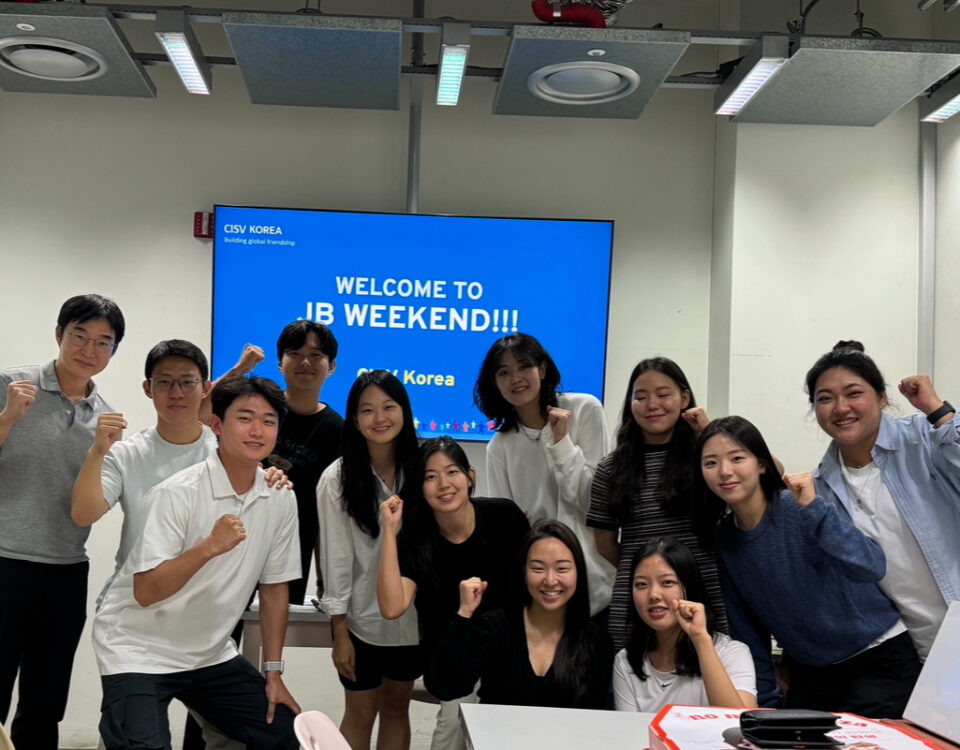
Navigating the Digital World
September 21, 2024
Empowering the Future: Promoting DEIB
September 21, 2024Cultural diversity has the potential to enrich our lives and broaden our perspectives. Teaching children to appreciate and respect different cultures fosters tolerance and understanding, and by celebrating diversity and promoting intercultural exchange, we can build a more inclusive and harmonious society. I’ve had the pleasure of experiencing this harmony several times throughout my eight years in CISV and Junior Branch, but one has stuck in my mind throughout my journey with this organization. At my first camp, a 16+ youth meeting back when that was a thing, I had the opportunity to talk in detail with one of my co-participants about our opinions on different topics; one of them being LGBTQIA+ rights, and quickly I realized that she had a very different perspective than mine. At first it was paradoxical to me; to be in an environment like CISV, and have someone question the naturality of LGBTQIA+ people. And then she started explaining to me how she came to this point of view; her deeply religious background, and upbringing in a country where the culture at large is not LGBTQIA+ friendly. And instead of debating or arguing over our views, we both examined where they came from; and how they had the potential to affect people around us both positively and negatively. I’ve carried that conversation with me for eight years, and to this day it makes me reflect on how my opinions, perspectives and insights are formed by my environment; and how it may influence others.
Practical Steps for Individuals
- Diversity is counting heads, inclusion is making heads count: It is not enough to simply find yourself in diverse groups; make it your mission to include everybody! Encourage different ideas and perspectives, and disagreement! That is what drives innovation, and makes the group a safe space for everybody involved.
- Educate yourself and keep an open mind!: When you are part of a majority, the lived experiences of diverse people will not present themself to you; you’ve got to seek them out! Be an active part in your own education, and keep your mind open to new perspectives, experiences and ways of living!
- Steer yourself towards the unfamiliar: Our brains are wired to seek out the familiar, because it is known and safe – make an effort to seek out the unfamiliar! It may be uncomfortable, but it is the simplest, most practical way to practice diversity and inclusion on a daily basis!
- MOSAICs: MOSAICs is CISV’s local, community based programme, aiming to make a tangible difference locally. And in JB, we very often work with Likeminded Organizations (LMOs)! This is a great for us to bring in new people, experience and for us all to be taught new things about complex topics – check in with your local Junior Branch to see when their next MOSAIC is happening, and they’ll be able to advise you on taking the next steps towards participation!
Practicing cultural diversity in Junior Branch
Junior Branch (JB) is, by definition, a diverse space. Very few people will disagree with that; but we have not always been so good about utilizing our diversity, and making sure that everybody is showcased and included! At the International Junior Branch Conference 2024, which took place just over a month ago, the content team had the wonderful idea to pilot a new initiative – the circle of neighborhoods! JB is divided into three regions, and those regions are again divided into four neighborhoods each. As a regional coordinator I’ve had the chance to learn about all of these at a surface level; what countries they include and what their overall goals are, but I’ve never had the chance to experience the neighborhoods themselves, showcasing their work and inviting others to collaborate! And that is exactly what the Circle of Neighborhoods provided; a space for neighborhoods to share their proudest moments, as well as their greatest struggles, and ask the global JB community for help!
This is a key example of an initiative that both showcases the different approaches we as a community have, but also
inviting others to contribute, share solutions and get involved in the work of the individual neighborhoods! Initiatives like these will be key in continuing the development of not just Junior Branch, but CISV, as a diverse, and inclusive organization on a global scale.
By Gustav Elmo, Europe, Middle East and Africa Junior Branch Team



